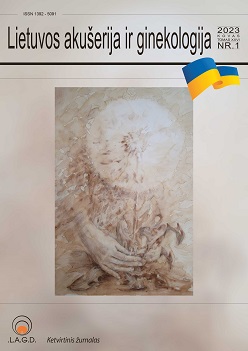ENDOMETRIAL RECEPTIVITY AND LUTEAL PHASE IN MEDICALLY ASSISTED REPRODUCTION
Abstract
This review focuses on the existing literature on endometrial receptivity, embryo implantation and luteal phase support in medically assisted reproduction. The electronic databases of “PubMed” (“Medline”), “Embase” and “Cochrane” were searched using the relevant keywords. 36 English-language articles with fulltext access published during last decade were selected for review. It is well established that after controlled ovarian hyperstimulation, the production of endogenous progesterone is insufficient. Therefore, in the fresh cycle luteal phase support is essential to improve reproductive outcomes. Transfer of frozen/thawed embryos can be performed in a programmed cycle, a natural menstrual cycle, a modified natural cycle, a stimulated cycle. Luteal phase support should be individualised to maximise the efficacy and safety of assisted reproductive technology.

